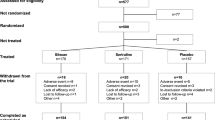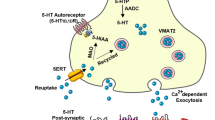Abstract.
Serotonin (5-HT) is a key neurotransmitter in the central nervous system. It is suggested that serotonergic dysfunction may be involved in the pathophysiology of fibromyalgia syndrome (FS). In this study, we aimed to investigate T102C polymorphism of the 5-HT2A receptor gene in FS. Fifty-eight patients with FS and 58 unrelated healthy volunteer controls were included in the study. In both groups, the C/C, C/T, and T/T genotypes of the 5-HT gene were represented in 31% (22.4% in controls), 50% (53.4%), and 19% (24.1%), respectively. The 5-HT2A receptor gene polymorphism results were not significantly different between patients and controls (chi squared test, P>0.05). There was a significant correlation between patients with the T/T genotype and the subgroup according to the SCL-90-R test, (analysis of variance, P<0.05). We also saw that patients with the T/T genotype had the lowest pain threshold. Conclusion. T102C polymorphism of the 5-HT2A receptor gene is not associated with the etiology of FS. Our results also indicate that the T/T genotype may be responsible for psychiatric symptoms of FS.
Similar content being viewed by others
Author information
Authors and Affiliations
Additional information
Electronic Publication
Rights and permissions
About this article
Cite this article
Gürsoy, S., Erdal, E., Herken, H. et al. Association of T102C polymorphism of the 5-HT2A receptor gene with pyschiatric status in fibromyalgia syndrome. Rheumatol Int 21, 58–61 (2001). https://doi.org/10.1007/s002960100130
Received:
Accepted:
Issue Date:
DOI: https://doi.org/10.1007/s002960100130




